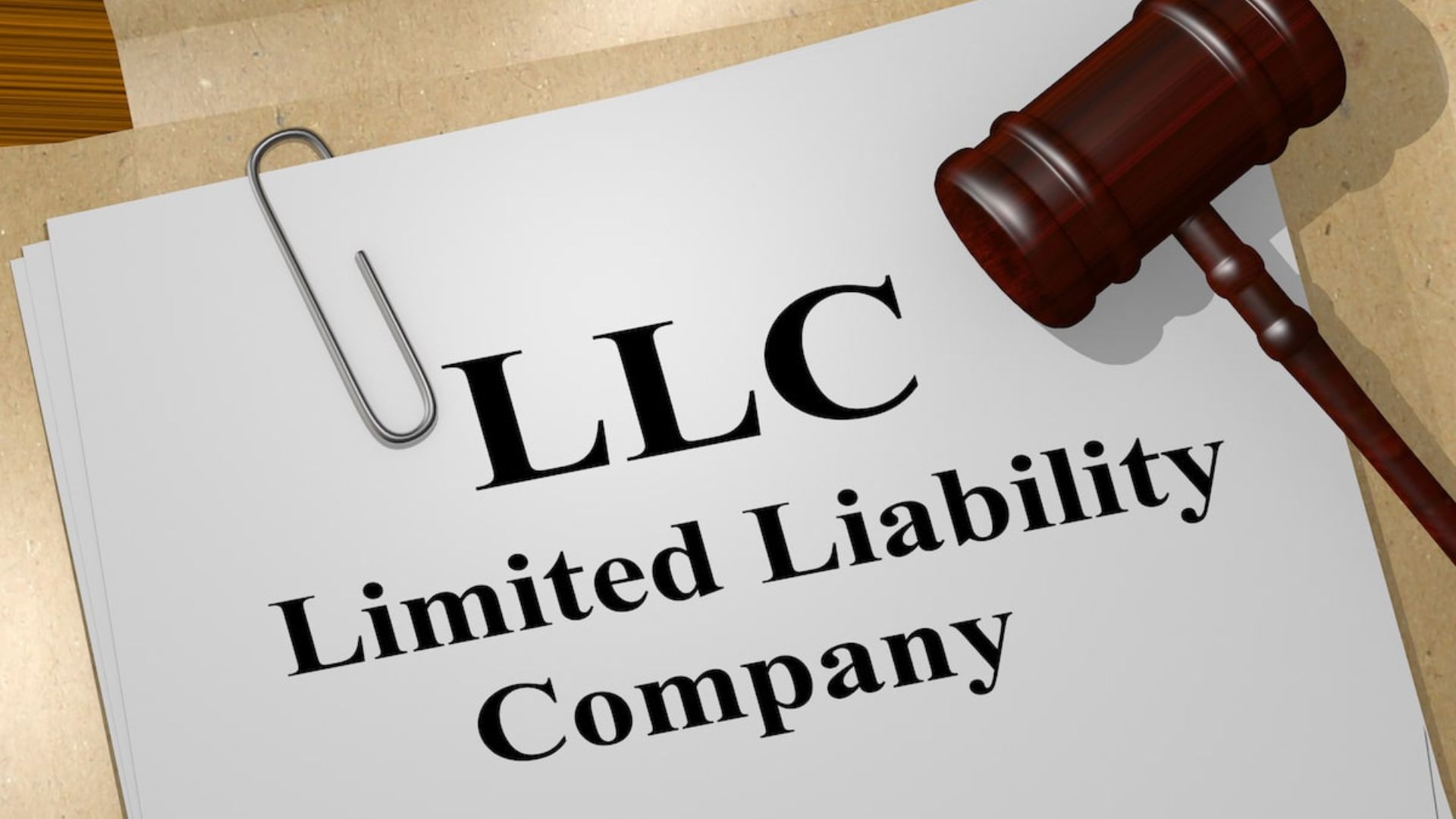
An LLC is a type of businessstructure that provides pass-through taxes and limited liability protection. Similar to corporations, LLCs are recognized by law as distinct legal entities from their owners. Owners are, therefore, ordinarily exempt from being held personally liable for the obligations and liabilities of the company.
Since the LLC's revenue is not taxed at the entity level, pass-through taxation is permitted, but if the LLC has several owners, a tax return for the LLC must be filed. Any profit or loss indicated by the LLC on this report is transferred to the owner(s).
The owners, also known as members, are then required to pay any applicable taxes and record the revenue or loss on their tax returns. According to theU.S. Census Bureau,the number of LLC members grew to more than 13.4 million.
LLCs are more common than corporations since they are simpler to organize and manage. They also have less accountability for owners, and they offer far greater tax flexibility. In this article, we will talk about theadvantages of setting up an LLCin detail. Here are the Advantages of forming a limited liability company (LLC)!
Perpetual Existence
A limited liability company exists indefinitely unless the articles of creation state otherwise. This implies that the owners are flexible and can make changes without leading to the company's demise.
The firm need not shut down in the event of a member's passing, retirement, or withdrawal for any other reason. According to the majority of state rules controlling LLCs, the business is only liquidated when;
- When one of the events listed in the operating agreement takes place, and the members approve of the dissolution
- A legal or administrative action results in the company's dissolution.
The LLC Act stipulates in certain jurisdictions that the dissolution of an LLC occurs upon the death or withdrawal of the final member. However, the LLC may still stipulate that a new member shall be chosen to carry on the LLC's operations in these states.
Flexible Management Structure
The advantages of conducting business as a corporation or limited liability firm are permanent existence, limited liability, and separate existence. Nonetheless, the flexibility of the LLC is a unique advantage.
The LLC's members can choose from a variety of management arrangements. According to state law, the LLC's members have business control. Alternatively, the LLC may stipulate that management will be in charge through its articles of formation and operating agreement.
Managers may be classified as members or non-members according to the terms of the operating agreements. Because of its adaptability, the LLC may be used by a small group of owners who want to manage the company jointly or by a large number of owners who are dispersed across the nation.
Taxation
Since an LLC is not regarded as a distinct tax entity, the IRS does not impose direct taxes on the corporation. Instead, it is the members' responsibility to pay the taxes through their income tax. Let's examine an illustration.
Let's say "boot & boot" employs two people and generates net earnings of $60,000 annually. Depending on their overall tax burden, the net gains will be split into two (number of members) and taxed as personal income. Due to the LLC's non-recognition as a business entity for tax reasons, a corporation, partnership, or sole proprietorship must submit the tax return.
Keep in mind that the IRS automatically classifies certain LLCs as corporations for tax reasons, so be careful to find out if your company fits into this description. By submitting Form 8832, LLCs that aren't immediately categorized as corporations can select the preferred business entity. Should the LLC choose to modify the categorization status, the same form is utilized.
Fewer Hassles
An LLC may be started more efficiently than any other type of business, with less complexity, expense, and paperwork involved. There are several operational benefits to this type of business, including reduced record-keeping and regulatory challenges.
Because LLCs are exempt from maintaining tight record books, holding annual meetings, or having a board of directors, they also offer a great deal of managerial flexibility. These features assist in saving a great deal of time and work by minimizing needless inconveniences.
In general, the "articles of organization," a document containing fundamental details such as the company name, address, and members, must be filed in order to incorporate an LLC. In most states, the filing is done with the Secretary of State, and there is a filing fee.
The next step is to draft an operating agreement, which is advised for multi-member LLCs in particular, even if it's not required in most states. It is necessary to seek additional licenses and permissions after the firm is registered.5.
In addition, certain states, including Arizona and New York, mandate that the local newspaper print an article regarding the establishment of an LLC.
Financial Management
By keeping personal and company funds separate, an LLC can aid in financial management. One of the most significant benefits of creating an LLC is that it makes keeping accurate records of spending and revenues and managing cash flow easier.
Additionally, it makes it easier for business owners to borrow money, generate cash, or make investments in their enterprises without jeopardizing their assets.
Inexpensive And Easy To Form
Establishing an LLC is far simpler and less expensive (typically less than $1,000) than forming a corporation.
Your state will decide the specific procedure, although costs and paperwork are usually meager. You must file Articles of Organization and an LLC operating agreement, which describes the ownership structure of the new firm, in addition to a brief formation document.
You may get internet templates for them, so you don't have to sketch them from scratch. Another option is to seek the assistance of a tax expert. Due to the significantly lower operational complexity involved, incorporating an LLC rather than a corporation is frequently more enticing to small firms.
LLCs are exempt from filing an annual report and hosting annual shareholders' meeting requirements. All you need is a registered agent, a person, or an organization that will accept any legal or financial documentation pertaining to your firm.
Operational Flexibility
The ability for owners to change the entity type of their LLCs is an intriguing advantage. A single-owner LLC is handled as a sole proprietorship by default. Still, it is possible to classify the business as a corporate entity for tax purposes with a simple check-the-box form.
In the event that an LLC owner has to switch from a sole proprietorship structure, this route offers them alternatives for development and flexibility. LLCs can also be categorized as partnerships in the future. If you would like to add one or more owners to your business, you do not need to choose the corporate filing status.
Limited Liability Coverage
Limited liability protects LLC owners from being held legally liable for the debts and liabilities of their firm. In the event that a limited liability corporation is sued, the plaintiffs are legally suing the business rather than the owners or investors.
In the case of debts, litigation, or other legal responsibilities, only the company is at stake, not your assets, provided that personal and corporate finances are kept separate.
Flexibility In Distribution
Members of an LLC are able to decide how earnings are distributed among themselves. This is not the same as a general partnership, wherein the earnings of the business must be divided equally among all partners.
Alternatively, LLCs permit profit distribution according to the conditions specified in the operating agreement. A higher profit share might be agreed upon if one member contributes more money up front or more sweat equity (working hard to make the business a success).
Confidentiality
Since LLCs are exempt from the requirement to reveal their ownership structure publicly, they provide greater anonymity than corporations.
Let's say a well-known celebrity wants to contribute to a company but would prefer that their support remain anonymous. By investing through an LLC, individuals can keep their ownership private, depending on the jurisdiction and the specific regulations regulating LLCs in that place.
Appropriate For Individuals
The benefits of an LLC aren't limited to businesses with several members. Individuals who choose to form a single-member LLC can also profit from it. You have greater control over how you choose to be taxed and are protected for your assets.
Selecting to be taxed as an S corp might result in tax benefits for specific organizations; however, state regulations regarding S corp status differ, so be careful to conduct local research.
Disadvantages Of LLC
Although an LLC has advantages over specific other business structures, some disadvantages should be considered before choosing an LLC as your company's organizational structure.
Limited Life
An LLC's lifespan is constrained by the length of time its members serve. States may differ, but in the majority of them, when a member leaves an LLC, the business is dissolved or ceases to exist, and the surviving members must fulfill any outstanding legal or business duties in order to end the business.
The remaining members may decide to split up or form a new LLC. An LLC's vulnerability can be addressed by adding the necessary clauses to the operating agreement.
Self-Employment Taxes
Since LLC members are deemed self-employed, they are responsible for paying their taxes for Medicare and Social Security. This means that the business's net income is liable to this tax.
In order to circumvent this, the entity may elect to be treated like a corporation if it proves to be more advantageous, contingent on company turnover and tax burden. Take advice from an accountant before making this decision.
Charges
An LLC usually pays an initial cost or recurring fee that is more than that of commercial organizations such as general partnerships or sole proprietorships but lower than that of a C-corporation. The many kinds of expenses include yearly report fees, continuing fees, and state filing fees that apply.
Precedent Is Less
Since LLCs are a relatively new type of corporate organization, there are few instances in the legal system concerning them. Because of this, there isn't as much case law or prior legal guidance about LLCs as there is for the more traditional forms.
Knowing a specific legal precedent makes it easier to respond appropriately in a similar situation. Because there are few established regulations, there is more risk.
Role Confusion
LLCs may not have as clearly defined functions as companies, which have particular positions such as directors, managers, and workers. LLCs do have members, and member-managers are a standard feature.
Members, employees, and investors may occasionally find it challenging to determine who is in control or authorized to sign particular contracts as a result. However, by establishing a clear management structure in an LLC operating agreement, this uncertainty may be avoided.
Transfer Limitations
Restricting membership transfers might occasionally be advantageous, but it can also make it challenging to draw in new investors or owners. Buying and selling stock in a company is more challenging than transferring membership interests in an LLC.
How To Create A Limited Liability Company?
Despite being typically simpler to incorporate than a corporation, there are still some administrative and regulatory requirements that must be met. These eight procedures will help you incorporate an LLC successfully and in accordance with state legislation.
Choose A State In Which To Form Your LLC
Even while an LLC may be formed in any state, even if it won't be conducting business there, most LLC owners opt to incorporate their company in the state where they want to conduct business, which is frequently their home state.
One reason for this is that the LLC may incur higher formation and administrative costs if it is formed in a state other than the one in which it is conducting business. Delaware is typically the state of choice for these LLCs. This is because the LLC will need to register as a foreign LLC, also known as a foreign qualify, in order to conduct business in the state where it is operating.
It's crucial to remember that state-by-state variations exist in terms of costs, taxes, and LLC rules, making certain jurisdictions more favorable to particular small company owners than others. Find out more about choosing a state for the creation of an LLC.
Choose A Name For Your LLC
You must select a name for your LLC that is not already registered with the Secretary of State as the name of another qualifying domestic LLC or other business organization. Many one-person businesses operate under a trade name or registered "doing business as" (DBA) name, which they may choose to use as the legal name of their LLC.
You should use the website of your formation state to perform an LLC name search to make sure the name you choose for your LLC is accessible, regardless of whether it is registered as your DBA name or not.
Reserving the name is a brilliant move if you need more time to be ready to file your LLC formation papers. You can accomplish so in several states for a small amount of time and a minor charge.
To prevent violating someone else's intellectual property or misleading your clients, it's also a good idea to perform a trademark check on the name you wish to use.
Choose A Registered Agent
It is necessary to have a registered agent in the state of formation or qualifying when creating an LLC or registering an already-existing LLC to conduct business in a foreign state. Many new business owners don't know what a registered agent does or even what the phrase "registered agent" means.
Important legal notices and tax papers are received by a registered agent, often referred to as an agent for service of process, on behalf of an LLC. These consist of tax documents sent by the state's Department of Taxes, notices and messages mailed by the Secretary of State (such as yearly reports or statements), and significant legal documents. Additionally, a registered agent must be accessible to accept the service of process, commonly known as a notice of litigation.
Service of process refers to the legal documents, usually summons and complaints, that notify an LLC that a lawsuit has been filed against it. The registered agent is often served with additional court documents, such as subpoenas and garnishment orders.
Even the most minor business owners should choose to work with a registered agent service provider to help fulfill this crucial need, even if the owner of the LLC has the option to act as the LLC's registered agent.
Create An Operating Agreement For An LLC
Almost all states require an LLC operating agreement. Additionally, it is highly advised that each LLC have a formal operating agreement, even if, in most jurisdictions, this is optional.
As the name suggests, it is an agreement about how the LLC will be run between the member or members and the LLC. Having an operational agreement is crucial, even if you are the only member.
It allows you to put in writing what you want to happen in specific situations, like if you can no longer manage the business, and it allows you to opt out of specific default provisions of the LLC statute that you might not want the LLC to be governed by. It also shows that you respect the LLC's separate existence (and can help avoid piercing the veil).
Register Your LLC With The State
The LLC formation documents, also called a Certificate of Organization, Certificate of Formation, or Articles of Organization, must be filed with the Secretary of State's office or the state department that manages business filings in the state in which you are forming in order for your new LLC to become formally constituted. In the United States, filing fees differ.
FAQs About Advantages Of Setting Up An LLC
Can A Single Person Own An LLC?
Yes, an LLC can be owned by a single individual, known as a single-member LLC.
How Are Profits And Losses Handled In An LLC?
Profits and losses can be passed through to the owners' tax returns, avoiding double taxation.
Is There A Lot Of Paperwork Involved In Forming An LLC?
Compared to other business structures, the paperwork for forming an LLC is relatively minimal.
Final Thoughts
Talking about the advantages of setting up an LLC, LLCs offer a solid balance of protection, flexibility, and tax benefits, making them an excellent choice. In addition to protecting individual members from personal accountability, it offers a variety of different taxation options.
LLCs are suitable for small enterprises due to the fact that their operation is less complicated and requires less effort. Nevertheless, before making the ultimate decision, it is recommended to seek the advice of a lawyer or an accountant for their professional judgment.




